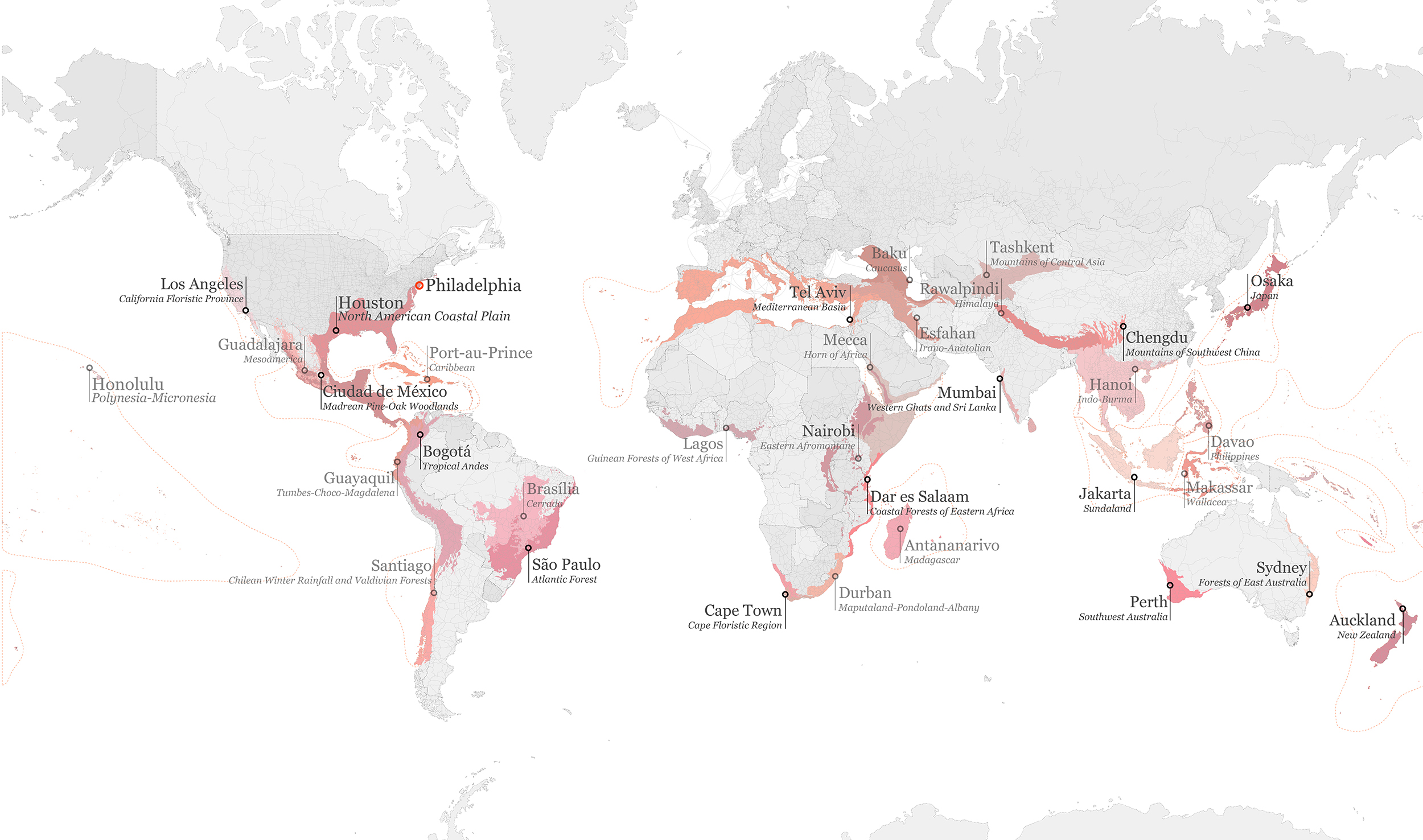Hotspot Cities Symposium
June 19-20th, 2019
This symposium brought urban planners, ecologists and policy makers together with representatives of major cities experiencing rapid growth in highly biodiverse regions. Speakers included representatives of major NGOs, foundations, research centers, leading academics, and representatives of 14 hotspot cities. Each city was represented by an urban planner and an ecologist or conservationist.
The symposium was organized by the McHarg Center for Urbanism and Ecology and the Penn Institute for Urban Research, and was hosted at the Perry World House at the University of Pennsylvania.
Speakers
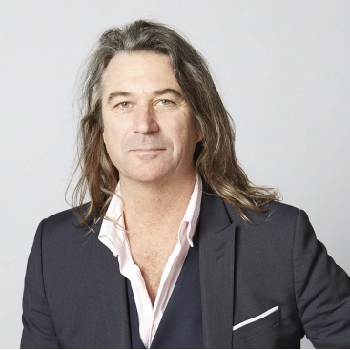
Richard Weller
Richard Weller
Stuart Weitzman School of Design, University of Pennsylvania
Richard Weller is Professor and Chair of Landscape Architecture, Meyerson Chair of Urbanism, and Co-Executive Director of the McHarg Center at The University of Pennsylvania. Weller has published over 100 academic papers and seven books, and his creative work has received numerous awards in international design competitions and has been exhibited in major museums including the Guggenheim Museum in New York, the Maxxi Gallery in Rome, the Isabella Stewart Gardner Museum in Boston, and the Museum of Contemporary Art in Sydney, as well as at the Venice Biennale. In 2017 and 2018, Richard was named by DesignIntelligence as one of North America’s most admired teachers of design, and in 2020 he was inducted into the Academy of Fellows of the Council of Educators in Landscape Architecture. His recent work—The Atlas for the End of the World—explores global flashpoints between biodiversity and urban growth and has been profiled in National Geographic and Scientific American.

Frederick Steiner
Frederick Steiner
Stuart Weitzman School of Design, University of Pennsylvania
Frederick Steiner is Dean and Paley Professor of the University of Pennsylvania Stuart Weitzman School of Design. Previously, he served as dean of the School of Architecture and Henry M. Rockwell Chair in Architecture at the University of Texas at Austin for 15 years. Steiner was a Fulbright-Hays scholar at Wageningen University, The Netherlands, and a Rome Prize Fellow in Historic Preservation at the American Academy in Rome. He is a fellow of both the American Society of Landscape Architects and the Council of Educators in Landscape Architecture, and a scholar at the Penn Institute for Urban Research. Steiner was a presidential appointee to the national board of the American Institute of Architects and was on the Urban Committee of the National Park System Advisory Board, and he helped establish the Sustainable SITES Initiative.

Eugenie Birch
Eugenie Birch
Stuart Weitzman School of Design, University of Pennsylvania
Eugénie L. Birch FAICP, FAcSS, RTPI (hon), is the Nussdorf Professor of Urban Research, Department of City and Regional Planning, University of Pennsylvania Stuart Weitzman School of Design. She is the founding co-director of the Penn Institute for Urban Research. She is co-editor of University of Pennsylvania Press’s City in the 21st Century series. Prof Birch currently serves on the Sustainable Development Solutions Network (SDSN) Executive Committee and the Board of Trustees of the Regional Plan Association. She is a member of the Word Economic Forum’s Futures Council on Urbanization, and president, General Assembly of Partners (GAP) for the implementation of the UN’s SDGs and the New Urban Agenda. Her current research focuses on informality, smart cities, and sustainable urban development. Her latest book is Slums, How Informal Real Estate Markets Work (2016). Dr Birch holds an AB from Bryn Mawr College (cum laude) and a PhD and Masters degree in Urban Planning from Columbia University.
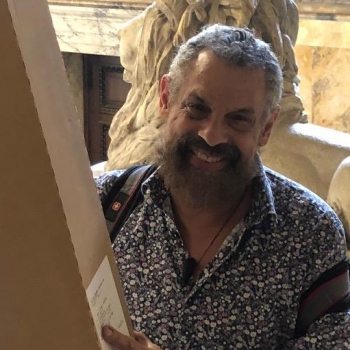
David Gouverneur
David Gouverneur
Stuart Weitzman School of Design, University of Pennsylvania
David Gouverneur received his M.Arch in Urban Design from Harvard University and his B.Arch from Universidad Simón Bolívar in Caracas, Venezuela. He is an associate professor of practice at the Department of Landscape Architecture and Regional Planning at the University of Pennsylvania Stuart Weitzman School of Design, where he teaches cross-disciplinary studios and theory/case study courses focusing on cities in the Global South. His recent research focuses on informal armatures as a method to address the rampant urbanization in developing countries, where a high percentage of the population will live in self-constructed areas. This research is condensed in his publication, Planning and Design for New Informal Settlements. Throughout his career, Gouverneur has served as the Chair of the School of Architecture at Universidad Simón Bolívar, Adjuct Secretary of Urban Development of Venezuela, Cofounder and Professor of the Urban Design program and Director of the Mayor's Institute in Urban Design at Universidad Metropolitana, Caracas, Venezuela.
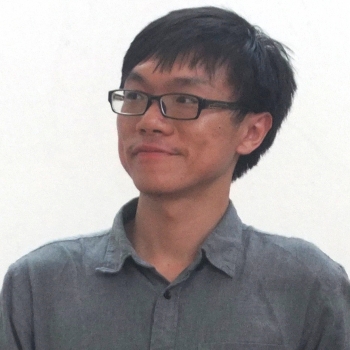
Kangning Huang
Kangning Huang
Yale School of Forestry and Environmental Studies
Kangning Huang is a doctoral candidate at the Yale School of Forestry and Environmental Studies and a NASA Earth and Space Science graduate fellow. His research focuses on the questions of how will the combination of urbanization and climate change affect our vulnerability and adaptability to environmental hazards? And, which urbanization pathways can best mitigate the vulnerability and adaptability to these hazards? In pursuing these interdisciplinary research questions, he employs a diverse set of methods including remote sensing, land cover/land use change and hydro-meteorological modeling, and nonlinear optimization. He will finish the doctoral program this year and will continue his research at the National Center of Atmospheric Research as an Advanced Study Program postdoctoral fellow.
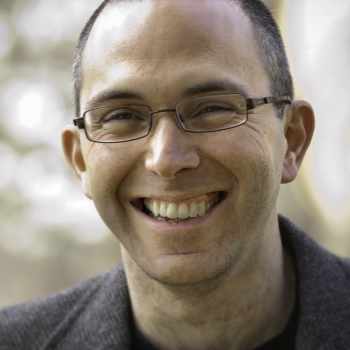
Dr. Rob McDonald
Dr. Rob McDonald
The Nature Conservancy
Dr. Robert McDonald is Lead Scientist for the Global Cities program at The Nature Conservancy. He researches the impact and dependences of cities on the natural world, and helps to direct the science behind much of the Conservancy’s urban conservation work. He holds a PhD in Ecology from Duke University and has published more than 50 peer-reviewed publications, and a recent book, entitled CONSERVATION FOR CITIES. Prior to joining the Conservancy, he was a Smith Conservation Biology Fellow at Harvard University, studying the impact global urban growth will have on biodiversity and conservation. He also taught landscape ecology at Harvard’s Graduate School of Design, helping architects and planners incorporate ecological principles into their projects.

Andrew Rudd
Andrew Rudd
UN-Habitat (United Nations Human Settlements Programme)
Andrew Rudd is the Urban Environment Officer in UN-Habitat's Urban Planning and Design Branch where he leads substantive outreach on sustainable cities, having helped secure the adoption of the urban Sustainable Development Goal (SDG-11) and the first global metrics on urban sprawl and public space. Andrew has also worked on policy formulation related to public space and urban governance and managed urban planning and design projects in Bangladesh, Belize, Burkina Faso, China, Ecuador, India, Indonesia, Nepal, Nigeria, Philippines, Sri Lanka, Zambia and Zimbabwe. Previously Andrew worked as an architect in the private sector in New York. He is co-editor of The Quito Papers and the New Urban Agenda (Routledge, 2018) and lead author of chapters in Urban Planet: Knowledge Towards Sustainable Cities (Cambridge, 2018) and Urban Environmental Education Review (Cornell, 2017).
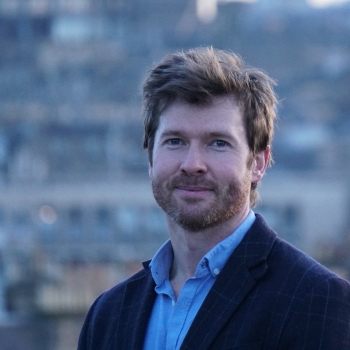
Russell Galt
Russell Galt
IUCN Urban Alliance
Russell Galt is an ecologist and the Director of the International Union for Conservation of Nature (IUCN) Urban Alliance – a broad coalition of partners working to renature cities. He considers access to a clean, safe and wildlife-rich environment to be a human right that requires special attention in cities. Russell holds an LLM in Natural Resources Law and Policy from the Centre for Energy, Petroleum and Mineral Law and Policy at the University of Dundee as well as a BSc (Hons) in Ecological Science from the University of Edinburgh. He has spent the past decade working internationally—from Brussels, Cape Town, Nairobi and Edinburgh—for IUCN, ICLEI – Local Governments for Sustainability, the South African National Biodiversity Institute and the United Nations Environment Programme.
City Representatives

Dr. Ernita Flynn
Dr. Ernita Flynn
ICLEI Africa Secretariat
Dr. Ernita Flynn is employed as a senior professional officer at ICLEI-Africa Secretariat and ICLEI’s Cities Biodiversity Center. Her work and interests focus on promoting nature-based benefits in urban environments through planning and implementation. Following initial training in ecology and conservation, Ernita developed an interest in how people and institutions value and interact with the natural environment. She is passionate about understanding how nature enriches and supports human life and how the benefits of nature can be mainstreamed into spatial and development planning. She specializes in considering environmental themes through a social, institutional and behavioural lens. She has a particular interest in approaches that help make strong arguments for incorporating nature and biodiversity into urban environments in developing country contexts.
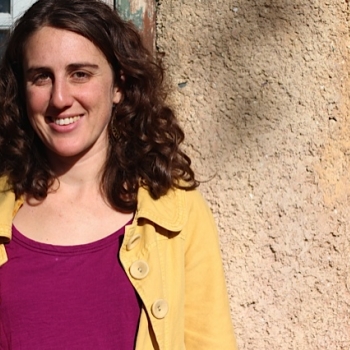
Erin Beller
Erin Beller
Erin Beller is the Urban Ecology Program Manager in Google’s Real Estate Sustainability Team, where she leads efforts to improve ecosystem health in the communities and landscapes Google calls home. She is also a doctoral candidate in the Department of Geography at the University of California Berkeley, where her research explores the role of history in guiding ecosystem management of cities and other human-dominated landscapes. Prior to joining Google, Erin worked as an applied historical ecologist with the San Francisco Estuary Institute’s Resilient Landscapes Program.

Robert Lane
Robert Lane
Regional Plan Association
Robert Lane is a senior fellow for urban design at Regional Plan Association (RPA) and founding principal of Plan & Process LLP. At RPA, Mr. lane directs the regional design program, which is devoted to reforming the metropolitan landscape through research and place-based planning and design interventions. He is responsible for the physical planning and design aspects of the just-released Fourth Regional Plan. Lane's current and recent past work focuses on the relationship between transit, land use, and urban design, and emphasizes public participation and communication through visual techniques. Projects include the Newark Vision Plan, Far West Side Redevelopment Alternatives Study, and the Civic Alliance community design workshop for the rebuilding of lower Manhattan after the 9/11 attacks. Industrial district design and redevelopment have been particular areas of focus and will be the subject of the forthcoming book, The Design of Urban Manufacturing, to be published by Routledge Press. Lane was a Loeb Fellow at Harvard GSD during the 2008–09 academic year, and was recently a fellow at the Design Trust for Public Space for the Making Midtown initiative.

Nina-Marie Lister
Nina-Marie Lister
Ryerson University
Nina-Marie Lister is a professor of architecture, landscape and design at Ryerson University, University of Toronto and Harvard University, and a Registered Professional Planner (MCIP, RPP) with a background in resource management, ecology and environmental planning. Lister is the founding principal of plandform, a creative studio practice exploring the relationship between landscape, ecology, and urbanism. Her research, teaching and practice focus on the confluence of landscape infrastructure and ecological processes within contemporary metropolitan regions. Lister is co-editor, with Chris Reed of Projective, and co-editor of The Ecosystem Approach: Complexity, Uncertainty, and Managing for Sustainability. She is author of more than 30 professional practice and scholarly publications including recent contributions to Ecological Urbanism, and Large Parks (winner of the J.B. Jackson Book Prize). Prof. Lister has received a Canada Mortgage + Housing Corporation Excellence in Education Award for outstanding educational contribution to sustainable practices, and in 2012 she was named Senior Scholar with the Centre for Humans and Nature.
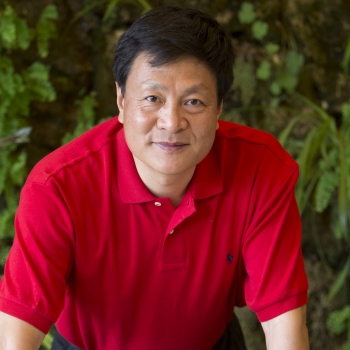
Dr. Kongjian Yu
Dr. Kongjian Yu
Peking University
Kongjian Yu, FASLA, received his Doctorate of Design from Harvard GSD, and is the founder of the College of Architecture and Landscape at Peking University and the founder and design principle of Turenscape. His projects won numerous international awards including 12 ASLA Excellence and Honor Awards, 5 WAF World Best Landscape of The Year Awards and a ULI Global Award of Excellence. He lectured worldwide and taught as visiting professor at Harvard GSD from 2010 to 2015. He was elected Member of the American Academy of Arts and Sciences in 2016, and received the Doctor Honoris Causa from the Sapienza University of Rome in 2017.
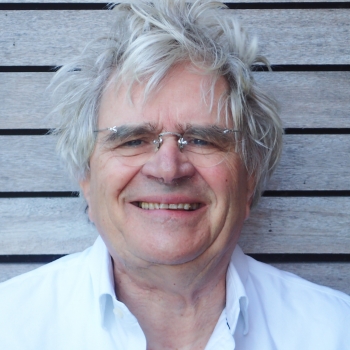
Dirk Sijmons
Dirk Sijmons
H+N+S Landscape Architects
Dirk Sijmons is the co-founder of H+N+S Landscape Architects (1990) and has worked at the State Forestry Service and several ministries (1977-1989). His work on regional planning and research projects helped to earn H+N+S the Prince Bernard Culture award in 2001. He has received numerous other awards including the Rotterdam-Maaskant award in 2002 and the prestigious Edgar Doncker award in 2007. In 2004-2008, Sijmons was appointed first State Landscape Architect of the Netherlands, and he held the chair of Environmental Design from 2008 to 2011 as well as the chair of Landscape Architecture from 2011 to 2015 at the TU-Delft. Dirk Sijmons was the curator of IABR--2014 themed Urban-by-Nature and at the World Design summit 2017 in Montreal, where he received the IFLA sir Geoffrey Jellicoe award. His English publications include: Landscape (1998), Greetings from Europe (2008), Landscape and Energy (2014), Moved Movement (2015), and Room-for-the-River (2017).
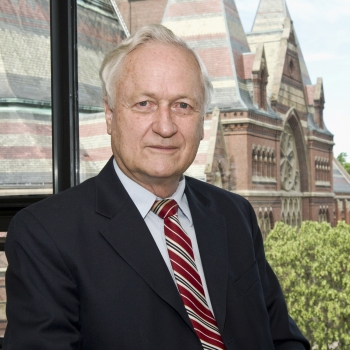
Dr. Richard Forman
Dr. Richard Forman
Harvard University
Richard T. T. Forman, professor emeritus at Harvard University and often considered a father of landscape ecology and road ecology, produced an urban-region plan for Barcelona, helped spearhead urban ecology, and recently pioneered town ecology. With a Haverford College B.S., University of Pennsylvania Ph.D., and two honorary doctorates, he taught ecology and land-use planning in Harvard College and teaches urban and town ecology in the Graduate School of Design. Previously he taught at the Escuela Agricola Panamericana, University of Wisconsin and Rutgers University, and has received honors/awards in eight countries. Forman’s books include: Land Mosaics (1995), Landscape Ecology Principles in Landscape Architecture and Land-Use Planning (1996), Road Ecology (2003), Mosaico territorial para la region metropolitana de Barcelona (2004), Urban Ecology (2014) and Towns, Ecology, and the Land (2019).

Zuzanna Drozdz
Zuzanna Drozdz
Stuart Weitzman School of Design, University of Pennsylvania
Zuzanna Drozdz is the Research Coordinator of the Hotspot Cities Project. She is a 2020 graduate of the Masters in Landscape Architecture program at the University of Pennsylvania.
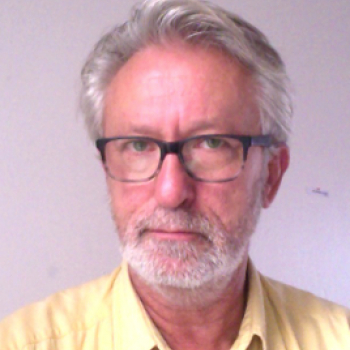
Dushko Bogunovich
Dushko Bogunovich
Auckland University, School of Architecture and Planning, Auckland, New Zealand
Dushko Bogunovich is an architect, urban designer, town planner and academic, residing in Auckland, New Zealand. He is an adjunct professor at the School of Architecture and Planning at The University of Auckland. Before that he was the inaugural Dean of the Faculty of the built Environment of the Ba Isago University in Botswana. Dushko studied at the universities of Sarajevo; Belgrade; Cyprus; Pennsylvania; and California/Berkeley. He is a life member of the International Society of City and Regional Planners (ISOCARP), a member of the New Zealand Institute of Architects (NZIA), and of the Urban Design Forum (UDF) of NZ. He was twice a Fulbright scholar and has won many urban design competition awards. He has worked with UNDP, UNEP and UN-Habitat; and was visiting scholar at universities of Oxford, Bologna, Genoa and Milan.
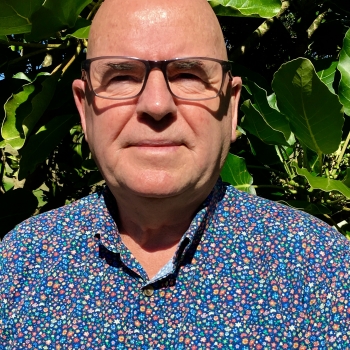
Dennis Scott
Dennis Scott
D J Scott Associates, Auckland, New Zealand
Dennis Scott is a registered NZILA Landscape Architect Fellow, and a designer, planner, researcher, strategist, policy maker, educator and ruralist. He has half a century of practical observation, documentation, application and project delivery experience, encompassing all NZ national, regional, and local landscape scales and typologies; across all sectors of the public and private domain. Dennis is currently the Director of DJScott Associates Ltd, Landscape Architects (Auckland, NZ) and a lecturer at Unitec Institute of Technology, Auckland, NZ, specializing in landscape planning, assessment and management.
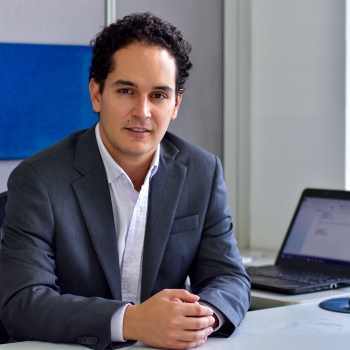
Juan Camilo González
Juan Camilo González
Alcaldía de Bogotá (Bogotá City Hall), Bogota, Colombia
Juan Camilo González is an advisor to the mayor of Bogota and a manager of North City, a large-scale urban development project. He holds an MBA from Stanford University, and studied industrial engineering at Los Andes University. Mr. González started his career in the financial sector with businesses including, Grupo Colpatria (market risk analysis), Citibank (business intelligence) and Merrill Lynch (investment banking). He then joined Linzor Capital, a private equity fund, managing more than $500 million in assets. At Linzor Capital, he participated in the financial, publishing and energy sectors. Before joining the Bogota’s administration, Mr. González started Epica, a real estate advisory company, where he structured development projects that earned for over $100 million in revenue. He sits in the board of Data Traffic and Rancho Victoria - a 5,000 hectares forestry project started by Mr. González in 2007.
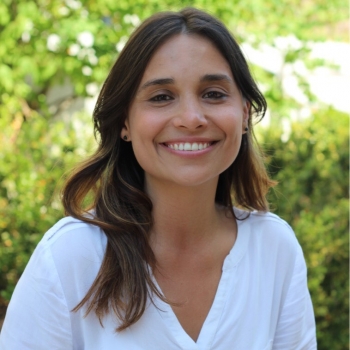
Natalia Acero
Natalia Acero
Conservation International Colombia, Bogota, Colombia
Natalia Acero is the Regional Manager of Water and Cities for Conservation International. Natalia holds a bachelor’s degree in Environmental Engineer and Chemical Engineer from Andes University in Colombia, and a master’s degree in Environmental Monitoring, Modelling and Management from King's College in London, UK. Natalia has focused her research on understanding the multiple benefits that freshwater ecosystem services brings to people. She has worked for the past 8 years in places such as Colombia, Cambodia, Madagascar, Liberia and the Amazon Region. Her current work, all of which proceeds implementation, includes finding nature-based solutions for water supply and regulation issues, and carrying out a freshwater ecosystems service strategy to support sustainable development and environmental protection goals in three Latin American mega cities of Rio de Janeiro, Mexico City and Bogotá.
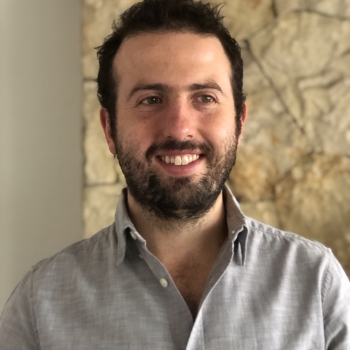
Diego Bermúdez Obregón
Diego Bermúdez Obregón
Bermúdez Arquitectos, Bogota, Colombia
Diego Bermudez obtained his MLA from the University of Pennsylvania, where he was awarded with the Narendra Juneja Medal. Bermudez has developed an innovative landscape architecture practice, Bermudez Arquitectos, where he is now the head of landscape architecture, urban design, master planning, flood protection infrastructure and water management systems. Projects include, climate change adaptation infrastructure for the Boston neighborhood of Cartagena, Colombia and three new tropical campuses for Minuto de Dios University. He teaches an undergraduate landscape architecture studio at Universidad de Los Andes, where he examines the future urban growth of Colombian cities in conflict with surrounding ecosystems.
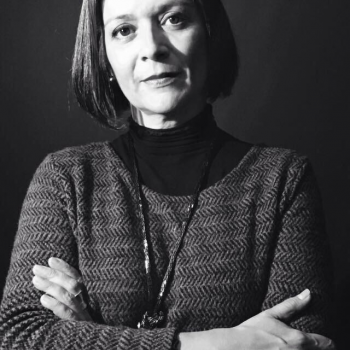
Liliana Giraldo
Liliana Giraldo
Colombian National Planning Department, Bogota, Colombia
Liliana Giraldo Arias is an architect from Pontificia Universidad Javeriana in Bogota. She holds a PhD in Urban Planning, Design and Policy from Politecnico di Milano, a master’s degree in Architecture and Urban Design from Harvard University and a certificate in Urban and Rural Studies for Developing Countries from Université Catholique de Louvain. She was the dean of the School of Habitat Sciences at Universidad de La Salle in Bogota from 2005-2018 and vice-dean of the Architecture School at Universidad de Bogotá Jorge Tadeo Lozano from 2000-2005. She was director of Suburban and Rural Planning, and director of Urban Environment at the Bogota mayor’s office in the City Planning Department during the 1990s. She has served as Board Councilor for Colombian architecture schools at the National State Council for Architects Registration, and vice-president of the Board of Directors at the National Society of Colombian Architecture. She is a territorial planner consultant, specializing in rural and regional development, and she is the current coordinator of the Modern POT (Territorial Ordinance Plan) program at the National Planning Department.

Rou Wen
Rou Wen
Chengdu, China
Wen Rou is an urban planner and master’s candidate based in Chengdu, China. Rou is engaged in environmental planning and related fields and has participated in urban and rural planning research at all levels. Her work has earned the award of National and Provincial Excellent Planning and Design and includes the Comprehensive Urban Plan of Chengdu City (2011-2020), concept planning of Chengdu Venous Industrial Parks, planning for major public service facilities in the new urban area of Eastern Chengdu, and layout planning for Chengdu Medical and Health Resources (2017-2035).

Fei Gao
Fei Gao
Chengdu Institute Of Planning & Design, Chengdu, China
Gao Fei is the Deputy Chief Engineer of the Chengdu Institute of Planning and Design, the Director of the Ecological Research Office, a professor-level senior engineer, and a master’s candidate in Chengdu, China. She primarily conducts research on urban ecological planning and municipal infrastructure planning. Gao Fei has been engaged in planning for more than ten years and has presided over several major municipal ecological programs and research topics, including: the Ecological Protection of Chengdu, the Chengdu Ecological Guarding, Chengdu’s Sponge City planning, the Building a Beautiful Livable Public Park City (Chengdu), Chengdu’s Planning for Ecological Green Space, the Ventilated Corridor Construction (Chengdu), and the Regional Ecological Corridor System in Eastern Chengdu. Several of these projects have earned her the award of National and Provincial Excellent Planning and Design.

Kyle Shelton
Kyle Shelton
Kinder Institute for Urban Research, Rice University, Houston, USA
Kyle Shelton is the director of strategic partnerships at Rice University's Kinder Institute for Urban Research, where he leads research on urban development, transportation and placemaking, as well as on urban and metropolitan governance. Shelton has a Ph.D. in American History from The University of Texas at Austin. His research focuses on how the intersections of transportation, urban development and policy shape the built and natural environments of cities in the past and today. He is the author of Power Moves: Transportation, Politics and Development in Houston.
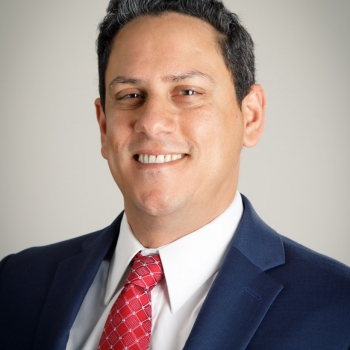
Jaime González
Jaime González
The Nature Conservancy in Texas, Houston, USA
Jaime González is the inaugural Houston Urban Conservation Programs Manager for The Nature Conservancy in Texas (TNC). His work prioritizes building partnerships, designing and managing projects, and assisting communities and other organizations to help make Houston a more resilient, biologically diverse, physically cooler, healthier, and better-connected city using nature-based solutions. Mr. González also serves on board of the Coastal Prairie Partnership and the North American Association for Environmental Education (NAAEE). Jaime has won numerous awards for his work, including a Distinguished Alumni Award from the University of Houston’s College of Natural Sciences and Mathematics, the Elizabeth Hull Abernathy Award from the Garden Club of America for environmental education of youth, and the Alban-Heiser Award from the Houston Zoo for conservation of Texas wildlife. Mr. González earned a M.Ed. in Curriculum & Instruction-Science Education, and a B.S. in Biology, both from the University of Houston, and a Certificate in Environmental Communication from Duke University.
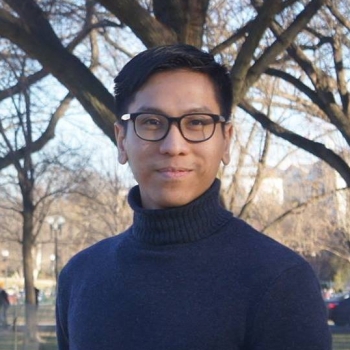
Muhammad Daud
Muhammad Daud
Jakarta Provincial Government - Governor's Delivery Unit, Jakarta, Indonesia
Muhammad Daud is a Senior Policy Analyst at the Jakarta Governor’s Delivery Unit. The unit aligns resources to accelerate the delivery of local priority programs and reports directly to the Governor of Jakarta. At the unit, Daud oversees priority programs on transit-oriented development, the integration of public transportation, the provision of affordable housing and the improvement of green open spaces. Prior to joining the Governor’s Delivery Unit, Daud worked as the Assistant to the Deputy Chief at the Office of the President - Republic of Indonesia, where he oversaw national issues on open governance, transportation and infrastructure. He also worked as a program manager for an internationally-acclaimed national complaint handling system. Daud received his Master of Urban Planning from the New York University Wagner School of Public Service, with a scholarship from the Ministry of Finance; and he earned his Bachelor of Social Science from the University of Indonesia.

Dr. Hendricus Andy Simarmata
Dr. Hendricus Andy Simarmata
University of Indonesia, Jakarta, Indonesia
Hendricus Andy Simarmata is a professional urban planner who has 18 years of experience in research, consulting, and advocacy in the field of sustainable urban development. For the last ten years, he has focused his work on integrating climate resilience into urban planning, especially through vulnerability and risk assessment, coastal ecosystem resilience, low carbon cities, and urban adaptation. Mr. Simarmata earned his DPhil (Ph.D.) with magna cum laude in Development Studies from the University of Bonn, one of the leading research universities in Germany, in 2016. Mr. Simarmata is now a Senior Research Fellow at the Research Center for Urban and Regional Studies, Graduate School of Strategic and Global Studies at the Universitas Indonesia, and has been serving as Secretary General of Indonesian Association of Urban and Regional Planners since 2016.

Dr. Koura Hisako
Dr. Koura Hisako
Kobe Design University, Keihanshin Region, Japan
Hisako Koura is a professor and the Chair of the Environmental Design Department at Kobe Design University. Koura is also a certificated planner; she practiced primarily as an urban planner for the Planning Department of Osaka City Government (1985-1992), before starting her academic career at Osaka University. She received her PhD from Osaka University in 1996 and worked as an associate professor at the Graduate School of Engineering at Osaka University from 1997 to 2015. Her major research fields are urban design and planning, and she is continually seeking stronger cooperation between academic research and practice. Most recently she has become increasingly interested in cultural landscapes. She is a member of several national and local governmental committees such as the Japan World Heritage Committee’s Agency of Cultural Affairs. Since moving to Kobe Design University, she has supported Kobe’s governmental planning practices.

Hiromune Mitsuhashi
Hiromune Mitsuhashi
University of Hyogo, Keihanshin Region, Japan
Hiromune Mitsuhashi is an ecologist and chief curator at the Museum of Nature and Human Activities in Hyogo Prefecture, Japan. He is also a specialist in landscape ecology and aquatic conservation. His work involves citizen-driven freshwater habitat restoration, as well as endangered species distribution modeling using historic natural history data collection from museums. His research focuses on linking nature restoration planning and practices and includes citizen science programs. As a member of the public committee, he has collaborated with the national and local government on many nature restoration projects, primarily for the Civil Engineering Department of Hyogo Prefecture Government and the Union of Kansai Governments. Since 2014, he has served as the chair of the Collaborative Wetland Restoration Project by Japan River Restoration Network (2017-2019, Best Award by The River Foundation JAPAN), an action research project whose mission is to restore nature and network community through appropriate implementation practices and educational programs.

Dr. Sophie Parker
Dr. Sophie Parker
The Nature Conservancy, Los Angeles, USA
Sophie Parker is a Senior Scientist in the Los Angeles office of The Nature Conservancy. She has over 20 years of experience in ecology and conservation science, and has provided scientific leadership to Conservancy projects in southern California since 2008. Dr. Parker leads the Conservancy’s California Renewable Energy science team in the Mojave and Sonoran deserts and provides science guidance for the organization’s stormwater capture and habitat enhancement work in Los Angeles. In addition, she is forging new methodologies for the planning and implementation of urban conservation through the Biodiversity Analysis in Los Angeles (BAILA) project. Dr. Parker received her Ph.D. from the Department of Ecology, Evolution, and Marine Biology at UC Santa Barbara; her research there focused on nitrogen cycling in California grasslands. One of Dr. Parker’s long-term career goals is to better integrate the fields of soil science and ecosystem ecology into conservation practice.

Kat Superfisky
Kat Superfisky
Grown in LA, Los Angeles, USA
Kat Superfisky is a designer, educator, and urban ecologist who devotes her days, nights and dreams to transforming urban areas into more inhabitable places. After obtaining a Master of Science in Conservation Ecology and a Master of Landscape Architecture from the University of Michigan in 2013, Kat moved across the country for the Los Angeles River. Kat sees LA—and its river—as the perfect laboratory to explore how to rebuild urban areas into more symbiotic cities. In LA, Kat has worked on large-scale planning efforts as the Urban Ecologist at Studio-MLA, and has founded and now serves as the Executive Director of Grown in LA. Kat currently teaches at California State Polytechnic University Pomona’s School of Environmental Design, serves on the Board of Directors for California ReLeaf, and is a Science Advisor for the City of LA Biodiversity Index and The Nature Conservancy and Natural History Museum's Biodiversity Assessment in Los Angeles.
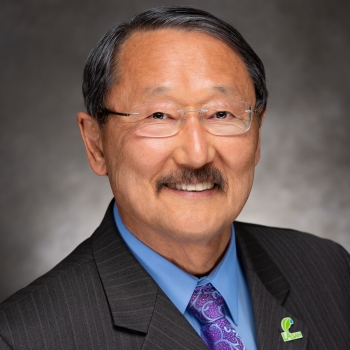
Dr. Mas Dojiri
Dr. Mas Dojiri
LA Sanitation, Los Angeles, USA
Mas DojirI is currently the Assistant General Manager at LA Sanitation & Environment (LASAN) and is LASAN’s Chief Scientist. He received his BA in Biology from UC Santa Barbara, his master’s degree in Marine Biology from California State University, Long Beach, and his PhD from Boston University in Marine Biology. Mas also completed a Postdoctoral Fellowship at the National Museum of Natural History, Smithsonian Institution in Washington D.C. Mas serves as a member of the Board of Governors of the Southern California Coastal Ocean Observing System, the current Vice-Chair of the Santa Monica Bay Restoration Commission’s Technical Advisory Committee, a member of the USC Sea Grant Advisory Council, and served as the Chair and Vice-Chair of the Board of Commissioners for the Southern California Coastal Water Research Project. Mas is also the chair of the Environmental Biology subcommittee of the American Academy of Environmental Engineers and Scientists and was instrumental to the team that created a national Board Certification for Environment Scientists.

Pedro Camarena
Pedro Camarena
National Autonomous University of Mexico (UNAM), Mexico City, Mexico
Pedro Camarena is a landscape architect and professor of design, based in Mexico City. Camarena studied Landscape Architecture at the National Autonomous University of Mexico (UNAM, 1998) and holds a Master in Sustainable Development from the University of Lanús / FLACAM, Argentina (2009). He is a cofounder of LAAP Workshop, which focuses on landscape architecture and urban intervention proposals at the territorial scale. Camarena is a professor of the Design Workshop at the Academic Unit of Landscape Architecture, UNAM, a visiting professor at the Universidad Marista of Merida’s graduate program in Landscape Architecture, and a program consultant for the Campus Ecological Control Program of UNAM and for the Ecological Reserve at Pedregal de San Angel. Previously, Camarena served as the president of the Landscape Architects Society of Mexico (SAPM 2013-2015), the organizer of the 1st Latin American Biennial of Landscape Architecture, the Landscape Chief of Parque Ecológico Lago de Texcoco, and the Chief of Special Projects of REPSA, where he led the transformation of traditional campus gardens into “xero-gardens.” He specializes in ecological restoration, green infrastructure, and mobility and has participated in national and international conferences and has published a number of works on these topics.
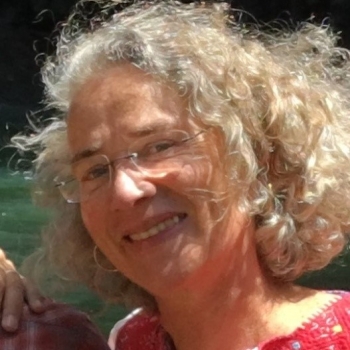
Dr. Silke Cram Heydrich
Dr. Silke Cram Heydrich
National Autonomous University of Mexico (UNAM), Mexico City, Mexico
Silke Cram, PhD, is a research member at the Institute of Geography and a professor in the Earth Science and Biology Graduate Program at the National Autonomous University of Mexico (UNAM) in Mexico City. A key focus of her work is on soil degradation due to anthropogenic activities and the evaluation of soil conservation practices. Her recent projects include research on urban soils and their role in the sustainability of cities. She currently leads the Ecological Reserve “Pedregal de San Ángel,” which is administered by UNAM, and is one of the few ecological reserves in the city. She has also helped to define the strategy for conservation and sustainable use of Mexico City’s biodiversity.

Hussain N Indorewala
Hussain N Indorewala
Kamla Raheja Vidyanidhi Institute for Architecture (KRVIA), Mumbai, India
Hussain Indorewala is a teacher, urban researcher and activist. He teaches planning theory, housing and humanities at the Kamla Raheja Vidyanidhi Institute for Architecture (KRVIA) in Mumbai. His research has focused on urban politics and ideology, planning epistemology, urban history, and urban political economy. He writes frequently in the popular press on urban development, planning and policy. He has been active in various social movements in Mumbai for housing rights, labour rights, sustainable mobility, environmental justice and participatory planning. He works closely with community groups through the Collective for Spatial Alternatives (CSA), an action, research and advocacy collective. He is also the co-convener of the citizen's group, Aamchi Mumbai Aamchi BEST, a citizen's forum for public transport.
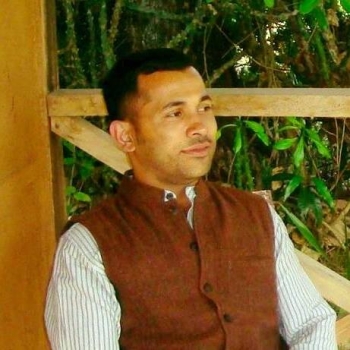
Dr. Geetanjoy Sahu
Dr. Geetanjoy Sahu
Centre for Science, Technology & Society, School of Habitat Studies, Tata Institute of Social Sciences (TISS), Mumbai, India
Geetanjoy Sahu is an Assistant Professor at the Centre for Science, Technology & Society, School of Habitat Studies, Tata Institute of Social Sciences (TISS) in Mumbai. He earlier served as Post-Doctoral Associate at the Centre for Interdisciplinary Studies in Environment and Development (CISED) in Bengaluru. He holds a PhD in Political Science from the Institute for Social and Economic Change (ISEC) in Bengaluru and a MPhil from the Hyderabad Central University (HCU) in Hyderabad. His research and teaching interests broadly include environmental policy and governance, analysis of judicial behavior on environmental litigation and politics of interaction between state and forest-rights groups over forest resource management. He is the author of the book titled, Environmental Jurisprudence and the Indian Supreme Court: Litigation, Interpretation and Implementation, published by Orient BlackSwan Pvt. Ltd, 2014.
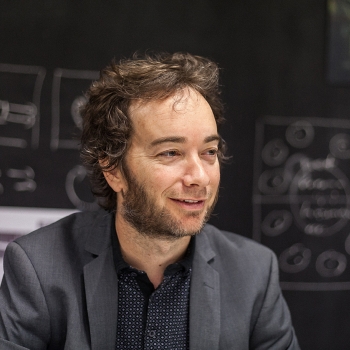
Dr. Julian Bolleter
Dr. Julian Bolleter
Australian Urban Design Research Centre (AUDRC) at the University of Western Australia, Perth, Australia
Dr. Julian Bolleter is the Acting Director of the Australian Urban Design Research Centre (AUDRC) at the University of Western Australia. His role at the AUDRC includes teaching a master’s program in urban design and conducting urban design related research and design projects. Julian is an experienced landscape architect and urban designer and has worked in design offices in Australia, the USA, the UK and the Middle East. He has completed a PhD concerning Dubai’s urban development and has commercially published five books- ‘Made in Australia: The future of Australian cities’ (with Richard Weller), ‘Take me to the River: A history of Perth’s foreshore,’ ‘Scavenging the Suburbs: Auditing Perth for 1 million infill dwellings,’ ‘The Ghost Cities of Australia: A survey of new city development proposals and their lessons for Australia’s 21st century development’ and ‘Desert Paradises: surveying the landscapes of Dubai’s urban model.’
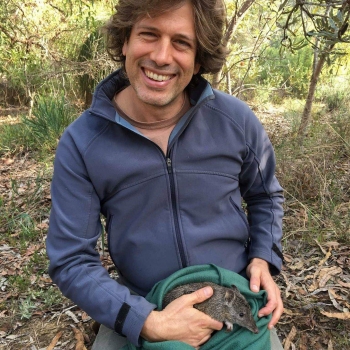
Dr. Joe Fontaine
Dr. Joe Fontaine
Murdoch University, Perth, Australia
Joe Fontaine is an ecologist based at Murdoch University in Perth, Western Australia. His background is in studying the impacts of disturbance and management, spanning a range of ecosystems and informing on-ground actions. His current work includes fire management research in threatened woodland systems in the Perth region, trying to better understand the interactive effects of changing climate, fire frequencies, and weed invasion. Other collaborative work has investigated the values of front gardens for native wildlife, social attitudes towards planting local indigenous plants, and woodland restoration techniques. Joe received his PhD in Wildlife Science from Oregon State University before heading down under and becoming a plant enthusiast.
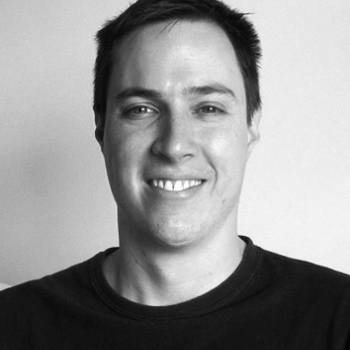
Roberto Rüsche
Roberto Rüsche
São Paulo Estate Metropolitan Planning Office - Emplasa, Sao Paulo, Brazil
Roberto Rüsche graduated with a degree in architecture and urbanism from the University of São Paulo in 2009, and he completed an exchange program at Universität Stuttgart in Germany in 2007-2008. In 2015, he received his master’s degree in architecture and urbanism from the University of São Paulo, where he focused on landscape as an aesthetic experience of nature. He is currently writing his doctorate in architecture and urbanism on the relationship between the sensitive perception of landscape and the metropolis, verifying its interpretations and meanings. Since 2014, he has worked in urban and regional planning at the São Paulo State Government (Emplasa), and frequently handles projects related to green open spaces and biodiversity in the metropolis of São Paulo.
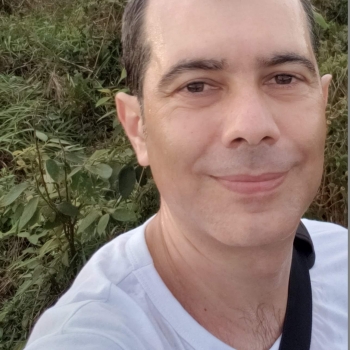
Rodrigo Antonio Braga Moraes Victor
Rodrigo Antonio Braga Moraes Victor
São Paulo State Environment Department, Sao Paulo, Brazil
Rodrigo Victor is a forest engineer who has worked in the São Paulo State Environment Department since 1996. He has served as the Executive Coordinator of the São Paulo City Green Belt Biosphere Reserve, Director General of the São Paulo State Forest Institute, Regional Director for Protected Areas Management at the São Paulo State Forest Foundation, among others. His main areas of interest are land planning for ecosystem conservation and sustainable use, protected areas establishment and management, urban and peri-urban ecosystems planning and management, social-environmental projects coordination, and ecosystem services assessment for human well-being. He has led several interdisciplinary projects and teams, and has participated in UNESCO and SCOPE working groups for urban environment management and research. He is currently a technical assistant at the São Paulo State Forest Foundation.
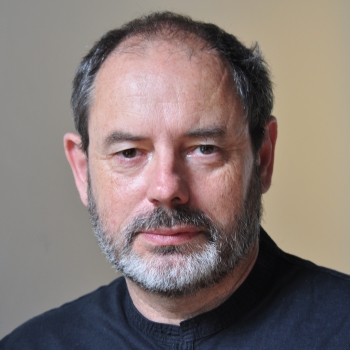
Roderick Simpson
Roderick Simpson
University of Sydney, Sydney, Australia
Roderick Simpson is an architect and urban designer and was recently appointed as the inaugural Environment Commissioner of the Greater Sydney Commission that is responsible for the strategic planning of the entire metropolitan region of Sydney. Until 2016, he was director of the Urban Design and Urbanism programs at the University of Sydney. His work has focused on sustainability since the early 1990s, and more recently, resilience. His current priority is to shift planning’s narrow focus on transport and productivity to give equal importance to ‘blue and green infrastructure’ as the starting point and the basis for an ‘adaptive urban management’ system. Mr. Simpson is currently an Adjunct Professor at the University of Technology Sydney, is a Member of the Australian Institute of Architects, Australian Institute of Landscape Architects and the Planning Institute of Australia and a Trustee of Sydney Living Museums.
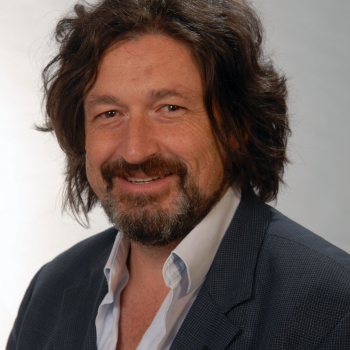
Dr. Dieter Hochuli
Dr. Dieter Hochuli
Associate Professor University of Sydney, Sydney, Australia
Dieter Hochuli heads the Integrative Ecology research group at the University of Sydney. His research focuses on how biodiversity responds to the unique pressures of urban ecosystems, identifying how conservation and restoration strategies can better support nature in cities. He adopts interdisciplinary approaches to blend fundamental ecology with current projects- examining the ecology of iconic birds, insects and spiders and their interactions with the environment. His recent work also examines how human activities in cities affect ecosystem health, and conversely how human wellbeing is affected by nature in cities. In addition to publishing over 80 papers on urban ecology, he coedited the Natural History of Sydney (2010) and coauthored the Urban Ecology Blueprint for New South Wales (2018).

Liav Shalem
Liav Shalem
Tel Aviv Municipality, Tel Aviv, Israel
Liav Shalem is a landscape architect and an ecologist. Liav received his B.A. in landscape architecture from the Technion-Israel Institute of Technology, and his M.A. in environmental studies from Tel Aviv University. He believes that combining both of the disciplines of landscape architecture and ecology, enables both the construction of a natural biological system and the design of an optimal and sustainable landscape. Liav works as an ecological consultant to the Tel Aviv municipality, and as the ecologist at Ganei Yahushua Company, which manages the largest metropolitan park in Israel. Liav specializes in the conservation and restoration of wetlands and coastal ecosystems, such as winter pools (vernal pools), wetlands and streams, sandy habitats and red loam soil. His projects take place in the city of Tel Aviv and nearby open green areas, and employ his unique spatial model which involves the community in the rehabilitation process.

Shlomit Zonenstein
Shlomit Zonenstein
Tel Aviv Municipality, Tel Aviv, Israel
Shlomit Zonenstein is a senior city planner at the municipality of Tel Aviv-Jaffa, city planning division. In her current position, she leads the city’s strategy, policy and municipal forum for city renewal. This role focuses on local neighborhoods while improving the public space, creating sustainable transportation, increasing the quality of life and empowering existing communities. Her previous roles in the private and public sector have involved the development and conservation of historical areas, including world heritage landmarks, in the city of Tel Aviv-Jaffa. In addition, Shlomit is a member of the Jewish-Arab city planners forum. She is a licensed architect and a graduate of the Bezalel Academy of Art and Design, Jerusalem.
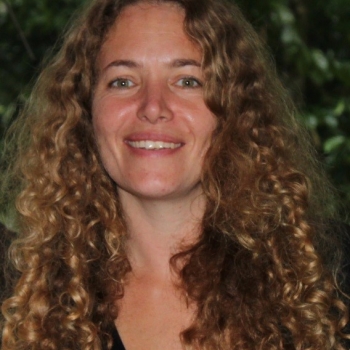
Dr. Galia Hanoch-Roe
Dr. Galia Hanoch-Roe
SPNI, Tel Aviv, Israel
Dr. Galia Hanoch Roe, landscape architect, is the Director of the Tel -Aviv Metropolitan Area branch of the Society of the Protection of Nature (SPNI). Galia is a graduate of Rutger University’s Landscape Architecture program, and a graduate of Yale University and CUNY Graduate School with a doctorate in music. As the director of the Tel -Aviv metropolitan branch of the SPNI, Galia leads several activities focused on nature preservation, community and sustainability. She helps to provide sustainability education to thousands of students, from pre-K to high school, and works with hundreds of youth programs centered around nature, preservation and community engagement across 14 municipalities of the region. Galia has also led numerous campaigns for nature preservation and strives to work with the government and local municipalities for a better and more sustainable quality of life within cities.
Richard Weller
Stuart Weitzman School of Design, University of Pennsylvania
Richard Weller is Professor and Chair of Landscape Architecture, Meyerson Chair of Urbanism, and Co-Executive Director of the McHarg Center at The University of Pennsylvania. Weller has published over 100 academic papers and seven books, and his creative work has received numerous awards in international design competitions and has been exhibited in major museums including the Guggenheim Museum in New York, the Maxxi Gallery in Rome, the Isabella Stewart Gardner Museum in Boston, and the Museum of Contemporary Art in Sydney, as well as at the Venice Biennale. In 2017 and 2018, Richard was named by DesignIntelligence as one of North America’s most admired teachers of design, and in 2020 he was inducted into the Academy of Fellows of the Council of Educators in Landscape Architecture. His recent work—The Atlas for the End of the World—explores global flashpoints between biodiversity and urban growth and has been profiled in National Geographic and Scientific American.
Frederick Steiner
Stuart Weitzman School of Design, University of Pennsylvania
Frederick Steiner is Dean and Paley Professor of the University of Pennsylvania Stuart Weitzman School of Design. Previously, he served as dean of the School of Architecture and Henry M. Rockwell Chair in Architecture at the University of Texas at Austin for 15 years. Steiner was a Fulbright-Hays scholar at Wageningen University, The Netherlands, and a Rome Prize Fellow in Historic Preservation at the American Academy in Rome. He is a fellow of both the American Society of Landscape Architects and the Council of Educators in Landscape Architecture, and a scholar at the Penn Institute for Urban Research. Steiner was a presidential appointee to the national board of the American Institute of Architects and was on the Urban Committee of the National Park System Advisory Board, and he helped establish the Sustainable SITES Initiative.
Eugenie Birch
Stuart Weitzman School of Design, University of Pennsylvania
Eugénie L. Birch FAICP, FAcSS, RTPI (hon), is the Nussdorf Professor of Urban Research, Department of City and Regional Planning, University of Pennsylvania Stuart Weitzman School of Design. She is the founding co-director of the Penn Institute for Urban Research. She is co-editor of University of Pennsylvania Press’s City in the 21st Century series. Prof Birch currently serves on the Sustainable Development Solutions Network (SDSN) Executive Committee and the Board of Trustees of the Regional Plan Association. She is a member of the Word Economic Forum’s Futures Council on Urbanization, and president, General Assembly of Partners (GAP) for the implementation of the UN’s SDGs and the New Urban Agenda. Her current research focuses on informality, smart cities, and sustainable urban development. Her latest book is Slums, How Informal Real Estate Markets Work (2016). Dr Birch holds an AB from Bryn Mawr College (cum laude) and a PhD and Masters degree in Urban Planning from Columbia University.
David Gouverneur
Stuart Weitzman School of Design, University of Pennsylvania
David Gouverneur received his M.Arch in Urban Design from Harvard University and his B.Arch from Universidad Simón Bolívar in Caracas, Venezuela. He is an associate professor of practice at the Department of Landscape Architecture and Regional Planning at the University of Pennsylvania Stuart Weitzman School of Design, where he teaches cross-disciplinary studios and theory/case study courses focusing on cities in the Global South. His recent research focuses on informal armatures as a method to address the rampant urbanization in developing countries, where a high percentage of the population will live in self-constructed areas. This research is condensed in his publication, Planning and Design for New Informal Settlements. Throughout his career, Gouverneur has served as the Chair of the School of Architecture at Universidad Simón Bolívar, Adjuct Secretary of Urban Development of Venezuela, Cofounder and Professor of the Urban Design program and Director of the Mayor's Institute in Urban Design at Universidad Metropolitana, Caracas, Venezuela.
Kangning Huang
Yale School of Forestry and Environmental Studies
Kangning Huang is a doctoral candidate at the Yale School of Forestry and Environmental Studies and a NASA Earth and Space Science graduate fellow. His research focuses on the questions of how will the combination of urbanization and climate change affect our vulnerability and adaptability to environmental hazards? And, which urbanization pathways can best mitigate the vulnerability and adaptability to these hazards? In pursuing these interdisciplinary research questions, he employs a diverse set of methods including remote sensing, land cover/land use change and hydro-meteorological modeling, and nonlinear optimization. He will finish the doctoral program this year and will continue his research at the National Center of Atmospheric Research as an Advanced Study Program postdoctoral fellow.
Dr. Rob McDonald
The Nature Conservancy
Dr. Robert McDonald is Lead Scientist for the Global Cities program at The Nature Conservancy. He researches the impact and dependences of cities on the natural world, and helps to direct the science behind much of the Conservancy’s urban conservation work. He holds a PhD in Ecology from Duke University and has published more than 50 peer-reviewed publications, and a recent book, entitled CONSERVATION FOR CITIES. Prior to joining the Conservancy, he was a Smith Conservation Biology Fellow at Harvard University, studying the impact global urban growth will have on biodiversity and conservation. He also taught landscape ecology at Harvard’s Graduate School of Design, helping architects and planners incorporate ecological principles into their projects.
Andrew Rudd
UN-Habitat (United Nations Human Settlements Programme)
Andrew Rudd is the Urban Environment Officer in UN-Habitat's Urban Planning and Design Branch where he leads substantive outreach on sustainable cities, having helped secure the adoption of the urban Sustainable Development Goal (SDG-11) and the first global metrics on urban sprawl and public space. Andrew has also worked on policy formulation related to public space and urban governance and managed urban planning and design projects in Bangladesh, Belize, Burkina Faso, China, Ecuador, India, Indonesia, Nepal, Nigeria, Philippines, Sri Lanka, Zambia and Zimbabwe. Previously Andrew worked as an architect in the private sector in New York. He is co-editor of The Quito Papers and the New Urban Agenda (Routledge, 2018) and lead author of chapters in Urban Planet: Knowledge Towards Sustainable Cities (Cambridge, 2018) and Urban Environmental Education Review (Cornell, 2017).
Russell Galt
IUCN Urban Alliance
Russell Galt is an ecologist and the Director of the International Union for Conservation of Nature (IUCN) Urban Alliance – a broad coalition of partners working to renature cities. He considers access to a clean, safe and wildlife-rich environment to be a human right that requires special attention in cities. Russell holds an LLM in Natural Resources Law and Policy from the Centre for Energy, Petroleum and Mineral Law and Policy at the University of Dundee as well as a BSc (Hons) in Ecological Science from the University of Edinburgh. He has spent the past decade working internationally—from Brussels, Cape Town, Nairobi and Edinburgh—for IUCN, ICLEI – Local Governments for Sustainability, the South African National Biodiversity Institute and the United Nations Environment Programme.
Dr. Ernita Flynn
ICLEI Africa Secretariat
Dr. Ernita Flynn is employed as a senior professional officer at ICLEI-Africa Secretariat and ICLEI’s Cities Biodiversity Center. Her work and interests focus on promoting nature-based benefits in urban environments through planning and implementation. Following initial training in ecology and conservation, Ernita developed an interest in how people and institutions value and interact with the natural environment. She is passionate about understanding how nature enriches and supports human life and how the benefits of nature can be mainstreamed into spatial and development planning. She specializes in considering environmental themes through a social, institutional and behavioural lens. She has a particular interest in approaches that help make strong arguments for incorporating nature and biodiversity into urban environments in developing country contexts.
Erin Beller
Erin Beller is the Urban Ecology Program Manager in Google’s Real Estate Sustainability Team, where she leads efforts to improve ecosystem health in the communities and landscapes Google calls home. She is also a doctoral candidate in the Department of Geography at the University of California Berkeley, where her research explores the role of history in guiding ecosystem management of cities and other human-dominated landscapes. Prior to joining Google, Erin worked as an applied historical ecologist with the San Francisco Estuary Institute’s Resilient Landscapes Program.
Robert Lane
Regional Plan Association
Robert Lane is a senior fellow for urban design at Regional Plan Association (RPA) and founding principal of Plan & Process LLP. At RPA, Mr. lane directs the regional design program, which is devoted to reforming the metropolitan landscape through research and place-based planning and design interventions. He is responsible for the physical planning and design aspects of the just-released Fourth Regional Plan. Lane's current and recent past work focuses on the relationship between transit, land use, and urban design, and emphasizes public participation and communication through visual techniques. Projects include the Newark Vision Plan, Far West Side Redevelopment Alternatives Study, and the Civic Alliance community design workshop for the rebuilding of lower Manhattan after the 9/11 attacks. Industrial district design and redevelopment have been particular areas of focus and will be the subject of the forthcoming book, The Design of Urban Manufacturing, to be published by Routledge Press. Lane was a Loeb Fellow at Harvard GSD during the 2008–09 academic year, and was recently a fellow at the Design Trust for Public Space for the Making Midtown initiative.
Nina-Marie Lister
Ryerson University
Nina-Marie Lister is a professor of architecture, landscape and design at Ryerson University, University of Toronto and Harvard University, and a Registered Professional Planner (MCIP, RPP) with a background in resource management, ecology and environmental planning. Lister is the founding principal of plandform, a creative studio practice exploring the relationship between landscape, ecology, and urbanism. Her research, teaching and practice focus on the confluence of landscape infrastructure and ecological processes within contemporary metropolitan regions. Lister is co-editor, with Chris Reed of Projective, and co-editor of The Ecosystem Approach: Complexity, Uncertainty, and Managing for Sustainability. She is author of more than 30 professional practice and scholarly publications including recent contributions to Ecological Urbanism, and Large Parks (winner of the J.B. Jackson Book Prize). Prof. Lister has received a Canada Mortgage + Housing Corporation Excellence in Education Award for outstanding educational contribution to sustainable practices, and in 2012 she was named Senior Scholar with the Centre for Humans and Nature.
Dr. Kongjian Yu
Peking University
Kongjian Yu, FASLA, received his Doctorate of Design from Harvard GSD, and is the founder of the College of Architecture and Landscape at Peking University and the founder and design principle of Turenscape. His projects won numerous international awards including 12 ASLA Excellence and Honor Awards, 5 WAF World Best Landscape of The Year Awards and a ULI Global Award of Excellence. He lectured worldwide and taught as visiting professor at Harvard GSD from 2010 to 2015. He was elected Member of the American Academy of Arts and Sciences in 2016, and received the Doctor Honoris Causa from the Sapienza University of Rome in 2017.
Dirk Sijmons
H+N+S Landscape Architects
Dirk Sijmons is the co-founder of H+N+S Landscape Architects (1990) and has worked at the State Forestry Service and several ministries (1977-1989). His work on regional planning and research projects helped to earn H+N+S the Prince Bernard Culture award in 2001. He has received numerous other awards including the Rotterdam-Maaskant award in 2002 and the prestigious Edgar Doncker award in 2007. In 2004-2008, Sijmons was appointed first State Landscape Architect of the Netherlands, and he held the chair of Environmental Design from 2008 to 2011 as well as the chair of Landscape Architecture from 2011 to 2015 at the TU-Delft. Dirk Sijmons was the curator of IABR--2014 themed Urban-by-Nature and at the World Design summit 2017 in Montreal, where he received the IFLA sir Geoffrey Jellicoe award. His English publications include: Landscape (1998), Greetings from Europe (2008), Landscape and Energy (2014), Moved Movement (2015), and Room-for-the-River (2017).
Dr. Richard Forman
Harvard University
Richard T. T. Forman, professor emeritus at Harvard University and often considered a father of landscape ecology and road ecology, produced an urban-region plan for Barcelona, helped spearhead urban ecology, and recently pioneered town ecology. With a Haverford College B.S., University of Pennsylvania Ph.D., and two honorary doctorates, he taught ecology and land-use planning in Harvard College and teaches urban and town ecology in the Graduate School of Design. Previously he taught at the Escuela Agricola Panamericana, University of Wisconsin and Rutgers University, and has received honors/awards in eight countries. Forman’s books include: Land Mosaics (1995), Landscape Ecology Principles in Landscape Architecture and Land-Use Planning (1996), Road Ecology (2003), Mosaico territorial para la region metropolitana de Barcelona (2004), Urban Ecology (2014) and Towns, Ecology, and the Land (2019).
Zuzanna Drozdz
Stuart Weitzman School of Design, University of Pennsylvania
Zuzanna Drozdz is the Research Coordinator of the Hotspot Cities Project. She is a 2020 graduate of the Masters in Landscape Architecture program at the University of Pennsylvania.
Dushko Bogunovich
Auckland University, School of Architecture and Planning, Auckland, New Zealand
Dushko Bogunovich is an architect, urban designer, town planner and academic, residing in Auckland, New Zealand. He is an adjunct professor at the School of Architecture and Planning at The University of Auckland. Before that he was the inaugural Dean of the Faculty of the built Environment of the Ba Isago University in Botswana. Dushko studied at the universities of Sarajevo; Belgrade; Cyprus; Pennsylvania; and California/Berkeley. He is a life member of the International Society of City and Regional Planners (ISOCARP), a member of the New Zealand Institute of Architects (NZIA), and of the Urban Design Forum (UDF) of NZ. He was twice a Fulbright scholar and has won many urban design competition awards. He has worked with UNDP, UNEP and UN-Habitat; and was visiting scholar at universities of Oxford, Bologna, Genoa and Milan.
Dennis Scott
D J Scott Associates, Auckland, New Zealand
Dennis Scott is a registered NZILA Landscape Architect Fellow, and a designer, planner, researcher, strategist, policy maker, educator and ruralist. He has half a century of practical observation, documentation, application and project delivery experience, encompassing all NZ national, regional, and local landscape scales and typologies; across all sectors of the public and private domain. Dennis is currently the Director of DJScott Associates Ltd, Landscape Architects (Auckland, NZ) and a lecturer at Unitec Institute of Technology, Auckland, NZ, specializing in landscape planning, assessment and management.
Juan Camilo González
Alcaldía de Bogotá (Bogotá City Hall), Bogota, Colombia
Juan Camilo González is an advisor to the mayor of Bogota and a manager of North City, a large-scale urban development project. He holds an MBA from Stanford University, and studied industrial engineering at Los Andes University. Mr. González started his career in the financial sector with businesses including, Grupo Colpatria (market risk analysis), Citibank (business intelligence) and Merrill Lynch (investment banking). He then joined Linzor Capital, a private equity fund, managing more than $500 million in assets. At Linzor Capital, he participated in the financial, publishing and energy sectors. Before joining the Bogota’s administration, Mr. González started Epica, a real estate advisory company, where he structured development projects that earned for over $100 million in revenue. He sits in the board of Data Traffic and Rancho Victoria - a 5,000 hectares forestry project started by Mr. González in 2007.
Natalia Acero
Conservation International Colombia, Bogota, Colombia
Natalia Acero is the Regional Manager of Water and Cities for Conservation International. Natalia holds a bachelor’s degree in Environmental Engineer and Chemical Engineer from Andes University in Colombia, and a master’s degree in Environmental Monitoring, Modelling and Management from King's College in London, UK. Natalia has focused her research on understanding the multiple benefits that freshwater ecosystem services brings to people. She has worked for the past 8 years in places such as Colombia, Cambodia, Madagascar, Liberia and the Amazon Region. Her current work, all of which proceeds implementation, includes finding nature-based solutions for water supply and regulation issues, and carrying out a freshwater ecosystems service strategy to support sustainable development and environmental protection goals in three Latin American mega cities of Rio de Janeiro, Mexico City and Bogotá.
Diego Bermúdez Obregón
Bermúdez Arquitectos, Bogota, Colombia
Diego Bermudez obtained his MLA from the University of Pennsylvania, where he was awarded with the Narendra Juneja Medal. Bermudez has developed an innovative landscape architecture practice, Bermudez Arquitectos, where he is now the head of landscape architecture, urban design, master planning, flood protection infrastructure and water management systems. Projects include, climate change adaptation infrastructure for the Boston neighborhood of Cartagena, Colombia and three new tropical campuses for Minuto de Dios University. He teaches an undergraduate landscape architecture studio at Universidad de Los Andes, where he examines the future urban growth of Colombian cities in conflict with surrounding ecosystems.
Liliana Giraldo
Colombian National Planning Department, Bogota, Colombia
Liliana Giraldo Arias is an architect from Pontificia Universidad Javeriana in Bogota. She holds a PhD in Urban Planning, Design and Policy from Politecnico di Milano, a master’s degree in Architecture and Urban Design from Harvard University and a certificate in Urban and Rural Studies for Developing Countries from Université Catholique de Louvain. She was the dean of the School of Habitat Sciences at Universidad de La Salle in Bogota from 2005-2018 and vice-dean of the Architecture School at Universidad de Bogotá Jorge Tadeo Lozano from 2000-2005. She was director of Suburban and Rural Planning, and director of Urban Environment at the Bogota mayor’s office in the City Planning Department during the 1990s. She has served as Board Councilor for Colombian architecture schools at the National State Council for Architects Registration, and vice-president of the Board of Directors at the National Society of Colombian Architecture. She is a territorial planner consultant, specializing in rural and regional development, and she is the current coordinator of the Modern POT (Territorial Ordinance Plan) program at the National Planning Department.
Rou Wen
Chengdu, China
Wen Rou is an urban planner and master’s candidate based in Chengdu, China. Rou is engaged in environmental planning and related fields and has participated in urban and rural planning research at all levels. Her work has earned the award of National and Provincial Excellent Planning and Design and includes the Comprehensive Urban Plan of Chengdu City (2011-2020), concept planning of Chengdu Venous Industrial Parks, planning for major public service facilities in the new urban area of Eastern Chengdu, and layout planning for Chengdu Medical and Health Resources (2017-2035).
Fei Gao
Chengdu Institute Of Planning & Design, Chengdu, China
Gao Fei is the Deputy Chief Engineer of the Chengdu Institute of Planning and Design, the Director of the Ecological Research Office, a professor-level senior engineer, and a master’s candidate in Chengdu, China. She primarily conducts research on urban ecological planning and municipal infrastructure planning. Gao Fei has been engaged in planning for more than ten years and has presided over several major municipal ecological programs and research topics, including: the Ecological Protection of Chengdu, the Chengdu Ecological Guarding, Chengdu’s Sponge City planning, the Building a Beautiful Livable Public Park City (Chengdu), Chengdu’s Planning for Ecological Green Space, the Ventilated Corridor Construction (Chengdu), and the Regional Ecological Corridor System in Eastern Chengdu. Several of these projects have earned her the award of National and Provincial Excellent Planning and Design.
Kyle Shelton
Kinder Institute for Urban Research, Rice University, Houston, USA
Kyle Shelton is the director of strategic partnerships at Rice University's Kinder Institute for Urban Research, where he leads research on urban development, transportation and placemaking, as well as on urban and metropolitan governance. Shelton has a Ph.D. in American History from The University of Texas at Austin. His research focuses on how the intersections of transportation, urban development and policy shape the built and natural environments of cities in the past and today. He is the author of Power Moves: Transportation, Politics and Development in Houston.
Jaime González
The Nature Conservancy in Texas, Houston, USA
Jaime González is the inaugural Houston Urban Conservation Programs Manager for The Nature Conservancy in Texas (TNC). His work prioritizes building partnerships, designing and managing projects, and assisting communities and other organizations to help make Houston a more resilient, biologically diverse, physically cooler, healthier, and better-connected city using nature-based solutions. Mr. González also serves on board of the Coastal Prairie Partnership and the North American Association for Environmental Education (NAAEE). Jaime has won numerous awards for his work, including a Distinguished Alumni Award from the University of Houston’s College of Natural Sciences and Mathematics, the Elizabeth Hull Abernathy Award from the Garden Club of America for environmental education of youth, and the Alban-Heiser Award from the Houston Zoo for conservation of Texas wildlife. Mr. González earned a M.Ed. in Curriculum & Instruction-Science Education, and a B.S. in Biology, both from the University of Houston, and a Certificate in Environmental Communication from Duke University.
Muhammad Daud
Jakarta Provincial Government - Governor's Delivery Unit, Jakarta, Indonesia
Muhammad Daud is a Senior Policy Analyst at the Jakarta Governor’s Delivery Unit. The unit aligns resources to accelerate the delivery of local priority programs and reports directly to the Governor of Jakarta. At the unit, Daud oversees priority programs on transit-oriented development, the integration of public transportation, the provision of affordable housing and the improvement of green open spaces. Prior to joining the Governor’s Delivery Unit, Daud worked as the Assistant to the Deputy Chief at the Office of the President - Republic of Indonesia, where he oversaw national issues on open governance, transportation and infrastructure. He also worked as a program manager for an internationally-acclaimed national complaint handling system. Daud received his Master of Urban Planning from the New York University Wagner School of Public Service, with a scholarship from the Ministry of Finance; and he earned his Bachelor of Social Science from the University of Indonesia.
Dr. Hendricus Andy Simarmata
University of Indonesia, Jakarta, Indonesia
Hendricus Andy Simarmata is a professional urban planner who has 18 years of experience in research, consulting, and advocacy in the field of sustainable urban development. For the last ten years, he has focused his work on integrating climate resilience into urban planning, especially through vulnerability and risk assessment, coastal ecosystem resilience, low carbon cities, and urban adaptation. Mr. Simarmata earned his DPhil (Ph.D.) with magna cum laude in Development Studies from the University of Bonn, one of the leading research universities in Germany, in 2016. Mr. Simarmata is now a Senior Research Fellow at the Research Center for Urban and Regional Studies, Graduate School of Strategic and Global Studies at the Universitas Indonesia, and has been serving as Secretary General of Indonesian Association of Urban and Regional Planners since 2016.
Dr. Koura Hisako
Kobe Design University, Keihanshin Region, Japan
Hisako Koura is a professor and the Chair of the Environmental Design Department at Kobe Design University. Koura is also a certificated planner; she practiced primarily as an urban planner for the Planning Department of Osaka City Government (1985-1992), before starting her academic career at Osaka University. She received her PhD from Osaka University in 1996 and worked as an associate professor at the Graduate School of Engineering at Osaka University from 1997 to 2015. Her major research fields are urban design and planning, and she is continually seeking stronger cooperation between academic research and practice. Most recently she has become increasingly interested in cultural landscapes. She is a member of several national and local governmental committees such as the Japan World Heritage Committee’s Agency of Cultural Affairs. Since moving to Kobe Design University, she has supported Kobe’s governmental planning practices.
Hiromune Mitsuhashi
University of Hyogo, Keihanshin Region, Japan
Hiromune Mitsuhashi is an ecologist and chief curator at the Museum of Nature and Human Activities in Hyogo Prefecture, Japan. He is also a specialist in landscape ecology and aquatic conservation. His work involves citizen-driven freshwater habitat restoration, as well as endangered species distribution modeling using historic natural history data collection from museums. His research focuses on linking nature restoration planning and practices and includes citizen science programs. As a member of the public committee, he has collaborated with the national and local government on many nature restoration projects, primarily for the Civil Engineering Department of Hyogo Prefecture Government and the Union of Kansai Governments. Since 2014, he has served as the chair of the Collaborative Wetland Restoration Project by Japan River Restoration Network (2017-2019, Best Award by The River Foundation JAPAN), an action research project whose mission is to restore nature and network community through appropriate implementation practices and educational programs.
Dr. Sophie Parker
The Nature Conservancy, Los Angeles, USA
Sophie Parker is a Senior Scientist in the Los Angeles office of The Nature Conservancy. She has over 20 years of experience in ecology and conservation science, and has provided scientific leadership to Conservancy projects in southern California since 2008. Dr. Parker leads the Conservancy’s California Renewable Energy science team in the Mojave and Sonoran deserts and provides science guidance for the organization’s stormwater capture and habitat enhancement work in Los Angeles. In addition, she is forging new methodologies for the planning and implementation of urban conservation through the Biodiversity Analysis in Los Angeles (BAILA) project. Dr. Parker received her Ph.D. from the Department of Ecology, Evolution, and Marine Biology at UC Santa Barbara; her research there focused on nitrogen cycling in California grasslands. One of Dr. Parker’s long-term career goals is to better integrate the fields of soil science and ecosystem ecology into conservation practice.
Kat Superfisky
Grown in LA, Los Angeles, USA
Kat Superfisky is a designer, educator, and urban ecologist who devotes her days, nights and dreams to transforming urban areas into more inhabitable places. After obtaining a Master of Science in Conservation Ecology and a Master of Landscape Architecture from the University of Michigan in 2013, Kat moved across the country for the Los Angeles River. Kat sees LA—and its river—as the perfect laboratory to explore how to rebuild urban areas into more symbiotic cities. In LA, Kat has worked on large-scale planning efforts as the Urban Ecologist at Studio-MLA, and has founded and now serves as the Executive Director of Grown in LA. Kat currently teaches at California State Polytechnic University Pomona’s School of Environmental Design, serves on the Board of Directors for California ReLeaf, and is a Science Advisor for the City of LA Biodiversity Index and The Nature Conservancy and Natural History Museum's Biodiversity Assessment in Los Angeles.
Dr. Mas Dojiri
LA Sanitation, Los Angeles, USA
Mas DojirI is currently the Assistant General Manager at LA Sanitation & Environment (LASAN) and is LASAN’s Chief Scientist. He received his BA in Biology from UC Santa Barbara, his master’s degree in Marine Biology from California State University, Long Beach, and his PhD from Boston University in Marine Biology. Mas also completed a Postdoctoral Fellowship at the National Museum of Natural History, Smithsonian Institution in Washington D.C. Mas serves as a member of the Board of Governors of the Southern California Coastal Ocean Observing System, the current Vice-Chair of the Santa Monica Bay Restoration Commission’s Technical Advisory Committee, a member of the USC Sea Grant Advisory Council, and served as the Chair and Vice-Chair of the Board of Commissioners for the Southern California Coastal Water Research Project. Mas is also the chair of the Environmental Biology subcommittee of the American Academy of Environmental Engineers and Scientists and was instrumental to the team that created a national Board Certification for Environment Scientists.
Pedro Camarena
National Autonomous University of Mexico (UNAM), Mexico City, Mexico
Pedro Camarena is a landscape architect and professor of design, based in Mexico City. Camarena studied Landscape Architecture at the National Autonomous University of Mexico (UNAM, 1998) and holds a Master in Sustainable Development from the University of Lanús / FLACAM, Argentina (2009). He is a cofounder of LAAP Workshop, which focuses on landscape architecture and urban intervention proposals at the territorial scale. Camarena is a professor of the Design Workshop at the Academic Unit of Landscape Architecture, UNAM, a visiting professor at the Universidad Marista of Merida’s graduate program in Landscape Architecture, and a program consultant for the Campus Ecological Control Program of UNAM and for the Ecological Reserve at Pedregal de San Angel. Previously, Camarena served as the president of the Landscape Architects Society of Mexico (SAPM 2013-2015), the organizer of the 1st Latin American Biennial of Landscape Architecture, the Landscape Chief of Parque Ecológico Lago de Texcoco, and the Chief of Special Projects of REPSA, where he led the transformation of traditional campus gardens into “xero-gardens.” He specializes in ecological restoration, green infrastructure, and mobility and has participated in national and international conferences and has published a number of works on these topics.
Dr. Silke Cram Heydrich
National Autonomous University of Mexico (UNAM), Mexico City, Mexico
Silke Cram, PhD, is a research member at the Institute of Geography and a professor in the Earth Science and Biology Graduate Program at the National Autonomous University of Mexico (UNAM) in Mexico City. A key focus of her work is on soil degradation due to anthropogenic activities and the evaluation of soil conservation practices. Her recent projects include research on urban soils and their role in the sustainability of cities. She currently leads the Ecological Reserve “Pedregal de San Ángel,” which is administered by UNAM, and is one of the few ecological reserves in the city. She has also helped to define the strategy for conservation and sustainable use of Mexico City’s biodiversity.
Hussain N Indorewala
Kamla Raheja Vidyanidhi Institute for Architecture (KRVIA), Mumbai, India
Hussain Indorewala is a teacher, urban researcher and activist. He teaches planning theory, housing and humanities at the Kamla Raheja Vidyanidhi Institute for Architecture (KRVIA) in Mumbai. His research has focused on urban politics and ideology, planning epistemology, urban history, and urban political economy. He writes frequently in the popular press on urban development, planning and policy. He has been active in various social movements in Mumbai for housing rights, labour rights, sustainable mobility, environmental justice and participatory planning. He works closely with community groups through the Collective for Spatial Alternatives (CSA), an action, research and advocacy collective. He is also the co-convener of the citizen's group, Aamchi Mumbai Aamchi BEST, a citizen's forum for public transport.
Dr. Geetanjoy Sahu
Centre for Science, Technology & Society, School of Habitat Studies, Tata Institute of Social Sciences (TISS), Mumbai, India
Geetanjoy Sahu is an Assistant Professor at the Centre for Science, Technology & Society, School of Habitat Studies, Tata Institute of Social Sciences (TISS) in Mumbai. He earlier served as Post-Doctoral Associate at the Centre for Interdisciplinary Studies in Environment and Development (CISED) in Bengaluru. He holds a PhD in Political Science from the Institute for Social and Economic Change (ISEC) in Bengaluru and a MPhil from the Hyderabad Central University (HCU) in Hyderabad. His research and teaching interests broadly include environmental policy and governance, analysis of judicial behavior on environmental litigation and politics of interaction between state and forest-rights groups over forest resource management. He is the author of the book titled, Environmental Jurisprudence and the Indian Supreme Court: Litigation, Interpretation and Implementation, published by Orient BlackSwan Pvt. Ltd, 2014.
Dr. Julian Bolleter
Australian Urban Design Research Centre (AUDRC) at the University of Western Australia, Perth, Australia
Dr. Julian Bolleter is the Acting Director of the Australian Urban Design Research Centre (AUDRC) at the University of Western Australia. His role at the AUDRC includes teaching a master’s program in urban design and conducting urban design related research and design projects. Julian is an experienced landscape architect and urban designer and has worked in design offices in Australia, the USA, the UK and the Middle East. He has completed a PhD concerning Dubai’s urban development and has commercially published five books- ‘Made in Australia: The future of Australian cities’ (with Richard Weller), ‘Take me to the River: A history of Perth’s foreshore,’ ‘Scavenging the Suburbs: Auditing Perth for 1 million infill dwellings,’ ‘The Ghost Cities of Australia: A survey of new city development proposals and their lessons for Australia’s 21st century development’ and ‘Desert Paradises: surveying the landscapes of Dubai’s urban model.’
Dr. Joe Fontaine
Murdoch University, Perth, Australia
Joe Fontaine is an ecologist based at Murdoch University in Perth, Western Australia. His background is in studying the impacts of disturbance and management, spanning a range of ecosystems and informing on-ground actions. His current work includes fire management research in threatened woodland systems in the Perth region, trying to better understand the interactive effects of changing climate, fire frequencies, and weed invasion. Other collaborative work has investigated the values of front gardens for native wildlife, social attitudes towards planting local indigenous plants, and woodland restoration techniques. Joe received his PhD in Wildlife Science from Oregon State University before heading down under and becoming a plant enthusiast.
Roberto Rüsche
São Paulo Estate Metropolitan Planning Office - Emplasa, Sao Paulo, Brazil
Roberto Rüsche graduated with a degree in architecture and urbanism from the University of São Paulo in 2009, and he completed an exchange program at Universität Stuttgart in Germany in 2007-2008. In 2015, he received his master’s degree in architecture and urbanism from the University of São Paulo, where he focused on landscape as an aesthetic experience of nature. He is currently writing his doctorate in architecture and urbanism on the relationship between the sensitive perception of landscape and the metropolis, verifying its interpretations and meanings. Since 2014, he has worked in urban and regional planning at the São Paulo State Government (Emplasa), and frequently handles projects related to green open spaces and biodiversity in the metropolis of São Paulo.
Rodrigo Antonio Braga Moraes Victor
São Paulo State Environment Department, Sao Paulo, Brazil
Rodrigo Victor is a forest engineer who has worked in the São Paulo State Environment Department since 1996. He has served as the Executive Coordinator of the São Paulo City Green Belt Biosphere Reserve, Director General of the São Paulo State Forest Institute, Regional Director for Protected Areas Management at the São Paulo State Forest Foundation, among others. His main areas of interest are land planning for ecosystem conservation and sustainable use, protected areas establishment and management, urban and peri-urban ecosystems planning and management, social-environmental projects coordination, and ecosystem services assessment for human well-being. He has led several interdisciplinary projects and teams, and has participated in UNESCO and SCOPE working groups for urban environment management and research. He is currently a technical assistant at the São Paulo State Forest Foundation.
Roderick Simpson
University of Sydney, Sydney, Australia
Roderick Simpson is an architect and urban designer and was recently appointed as the inaugural Environment Commissioner of the Greater Sydney Commission that is responsible for the strategic planning of the entire metropolitan region of Sydney. Until 2016, he was director of the Urban Design and Urbanism programs at the University of Sydney. His work has focused on sustainability since the early 1990s, and more recently, resilience. His current priority is to shift planning’s narrow focus on transport and productivity to give equal importance to ‘blue and green infrastructure’ as the starting point and the basis for an ‘adaptive urban management’ system. Mr. Simpson is currently an Adjunct Professor at the University of Technology Sydney, is a Member of the Australian Institute of Architects, Australian Institute of Landscape Architects and the Planning Institute of Australia and a Trustee of Sydney Living Museums.
Dr. Dieter Hochuli
Associate Professor University of Sydney, Sydney, Australia
Dieter Hochuli heads the Integrative Ecology research group at the University of Sydney. His research focuses on how biodiversity responds to the unique pressures of urban ecosystems, identifying how conservation and restoration strategies can better support nature in cities. He adopts interdisciplinary approaches to blend fundamental ecology with current projects- examining the ecology of iconic birds, insects and spiders and their interactions with the environment. His recent work also examines how human activities in cities affect ecosystem health, and conversely how human wellbeing is affected by nature in cities. In addition to publishing over 80 papers on urban ecology, he coedited the Natural History of Sydney (2010) and coauthored the Urban Ecology Blueprint for New South Wales (2018).
Liav Shalem
Tel Aviv Municipality, Tel Aviv, Israel
Liav Shalem is a landscape architect and an ecologist. Liav received his B.A. in landscape architecture from the Technion-Israel Institute of Technology, and his M.A. in environmental studies from Tel Aviv University. He believes that combining both of the disciplines of landscape architecture and ecology, enables both the construction of a natural biological system and the design of an optimal and sustainable landscape. Liav works as an ecological consultant to the Tel Aviv municipality, and as the ecologist at Ganei Yahushua Company, which manages the largest metropolitan park in Israel. Liav specializes in the conservation and restoration of wetlands and coastal ecosystems, such as winter pools (vernal pools), wetlands and streams, sandy habitats and red loam soil. His projects take place in the city of Tel Aviv and nearby open green areas, and employ his unique spatial model which involves the community in the rehabilitation process.
Shlomit Zonenstein
Tel Aviv Municipality, Tel Aviv, Israel
Shlomit Zonenstein is a senior city planner at the municipality of Tel Aviv-Jaffa, city planning division. In her current position, she leads the city’s strategy, policy and municipal forum for city renewal. This role focuses on local neighborhoods while improving the public space, creating sustainable transportation, increasing the quality of life and empowering existing communities. Her previous roles in the private and public sector have involved the development and conservation of historical areas, including world heritage landmarks, in the city of Tel Aviv-Jaffa. In addition, Shlomit is a member of the Jewish-Arab city planners forum. She is a licensed architect and a graduate of the Bezalel Academy of Art and Design, Jerusalem.
Dr. Galia Hanoch-Roe
SPNI, Tel Aviv, Israel
Dr. Galia Hanoch Roe, landscape architect, is the Director of the Tel -Aviv Metropolitan Area branch of the Society of the Protection of Nature (SPNI). Galia is a graduate of Rutger University’s Landscape Architecture program, and a graduate of Yale University and CUNY Graduate School with a doctorate in music. As the director of the Tel -Aviv metropolitan branch of the SPNI, Galia leads several activities focused on nature preservation, community and sustainability. She helps to provide sustainability education to thousands of students, from pre-K to high school, and works with hundreds of youth programs centered around nature, preservation and community engagement across 14 municipalities of the region. Galia has also led numerous campaigns for nature preservation and strives to work with the government and local municipalities for a better and more sustainable quality of life within cities.

